I do envy farmers who manage to live organised, orderly lives, but maybe I’d find that boring. Here we tend ricochet from one impending crisis to the next.
But to be fair, we have been farming on a building site for the last 12 months.
This is because we’re playing catch up with investment in new buildings and concrete to replace buildings and concrete which hasn’t taken place over the last 40 years.
Last Sunday-week was a typical example. I was due to fly to Belfast for the IDF World Dairy Summit.
Just before I was due to leave, having done the morning milking, I thought I’d better check a cow that had been waiting for a week to calve.
On doing an internal, I discovered a head and two front legs; these were easily sorted with a live heifer calf on the floor.
Bit small, I thought, better check for twins, and discovered two front legs and a head and soon a second heifer calf was on the floor.
I went in again and discovered two more front legs with a head back. Panic – plane to catch, but was live triplets too much to hope for?
I failed to get the head up and spent a frantic 30 minutes trying to overcome the failings of the vet emergency service telephone answering system.
On the third phone call and still no vet, I’m afraid the language became rather blue. The vet eventually arrived and produced a live bull calf.
I realised the clocks had gone back an hour so I could still catch my plane and the other end of the table tells me the cow is so good the male offspring will be a breeding bull, his sire suitably the Northern Irish Friesian Inch Number One, and his name “Brinkworth Novet”.
Onwards to Belfast
Arriving at Belfast, I was lucky enough to bump into old friend, Kevin Bellamy from Rabobank.
He has a great knowledge of the dairy industry worldwide and it wasn’t very reassuring when he agreed with me that going forward past Brexit, things looked extremely grim for English dairy farmers.
I didn’t manage to speak to Minister of Agriculture, Michael Gove, sorry, Minister of Environment Food and Farming, but spent a considerable amount of time with two high ranking officials from DEFRA.
When I expressed my fear for the future of English dairy farming, I was pleasantly surprised when they challenged me back, saying: “What do you suggest we do?”
I felt this was a genuine listening ear and that I could be pushing against an opening door.
I suggested that increased TB compensation payments to farmers with closed herds would encourage them not to break the closed herd status in the event of a breakdown.
Since farmers will be fighting environmentalists for a share of funding going forwards, I suggested that on the basis when a herd is increased the last thing to be increased is the storage and handling capacity of dirty water and slurry, help with the cost would benefit both farmers and the environment.
Back slapping
The first day at the summit seemed to include an awful lot of professional back-slapping by various dairy organisations from around the world on how well they were doing on welfare issues and informing the public about them.
For me, as a farmer, the nuts and bolts of the conference was the talk on the last day by Dr Bernadette O’Brien on precision technology for pasture management including plate metres connected to satellites, which then conveyed a message as to where the pasture should be split for one feed.
Also, the talk by Duncan Forbes from Kingshay was riveting as he told us about their new project in Somerset involving all the latest technology – head-to-head offset cubicles and passages scraped to a central drain down the cubicle passage, modular wind turbines and the potential for virtual fences for grazing.
But I did suggest that as technology develops, we needed a device to monitor and measure the stress on the cow living side-by-side with this technology.
Home farm
Here at home, the cows are still out days on the 10 November; grass quality must be good since milk urea levels are high, but I have spoken to my friend in Scotland – his cows have been housed since August and he hasn’t done his second cut, or harvested his whole crop. I feel desperately sorry for him, and he is not alone.
Read more
Farmer Writes: countdown to the dry period
Farmer Writes: the housing checklist
I do envy farmers who manage to live organised, orderly lives, but maybe I’d find that boring. Here we tend ricochet from one impending crisis to the next.
But to be fair, we have been farming on a building site for the last 12 months.
This is because we’re playing catch up with investment in new buildings and concrete to replace buildings and concrete which hasn’t taken place over the last 40 years.
Last Sunday-week was a typical example. I was due to fly to Belfast for the IDF World Dairy Summit.
Just before I was due to leave, having done the morning milking, I thought I’d better check a cow that had been waiting for a week to calve.
On doing an internal, I discovered a head and two front legs; these were easily sorted with a live heifer calf on the floor.
Bit small, I thought, better check for twins, and discovered two front legs and a head and soon a second heifer calf was on the floor.
I went in again and discovered two more front legs with a head back. Panic – plane to catch, but was live triplets too much to hope for?
I failed to get the head up and spent a frantic 30 minutes trying to overcome the failings of the vet emergency service telephone answering system.
On the third phone call and still no vet, I’m afraid the language became rather blue. The vet eventually arrived and produced a live bull calf.
I realised the clocks had gone back an hour so I could still catch my plane and the other end of the table tells me the cow is so good the male offspring will be a breeding bull, his sire suitably the Northern Irish Friesian Inch Number One, and his name “Brinkworth Novet”.
Onwards to Belfast
Arriving at Belfast, I was lucky enough to bump into old friend, Kevin Bellamy from Rabobank.
He has a great knowledge of the dairy industry worldwide and it wasn’t very reassuring when he agreed with me that going forward past Brexit, things looked extremely grim for English dairy farmers.
I didn’t manage to speak to Minister of Agriculture, Michael Gove, sorry, Minister of Environment Food and Farming, but spent a considerable amount of time with two high ranking officials from DEFRA.
When I expressed my fear for the future of English dairy farming, I was pleasantly surprised when they challenged me back, saying: “What do you suggest we do?”
I felt this was a genuine listening ear and that I could be pushing against an opening door.
I suggested that increased TB compensation payments to farmers with closed herds would encourage them not to break the closed herd status in the event of a breakdown.
Since farmers will be fighting environmentalists for a share of funding going forwards, I suggested that on the basis when a herd is increased the last thing to be increased is the storage and handling capacity of dirty water and slurry, help with the cost would benefit both farmers and the environment.
Back slapping
The first day at the summit seemed to include an awful lot of professional back-slapping by various dairy organisations from around the world on how well they were doing on welfare issues and informing the public about them.
For me, as a farmer, the nuts and bolts of the conference was the talk on the last day by Dr Bernadette O’Brien on precision technology for pasture management including plate metres connected to satellites, which then conveyed a message as to where the pasture should be split for one feed.
Also, the talk by Duncan Forbes from Kingshay was riveting as he told us about their new project in Somerset involving all the latest technology – head-to-head offset cubicles and passages scraped to a central drain down the cubicle passage, modular wind turbines and the potential for virtual fences for grazing.
But I did suggest that as technology develops, we needed a device to monitor and measure the stress on the cow living side-by-side with this technology.
Home farm
Here at home, the cows are still out days on the 10 November; grass quality must be good since milk urea levels are high, but I have spoken to my friend in Scotland – his cows have been housed since August and he hasn’t done his second cut, or harvested his whole crop. I feel desperately sorry for him, and he is not alone.
Read more
Farmer Writes: countdown to the dry period
Farmer Writes: the housing checklist




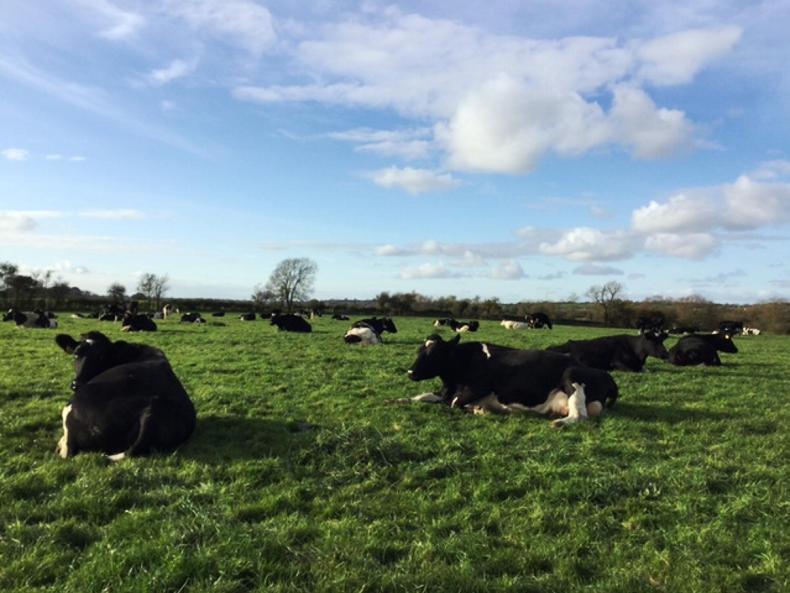
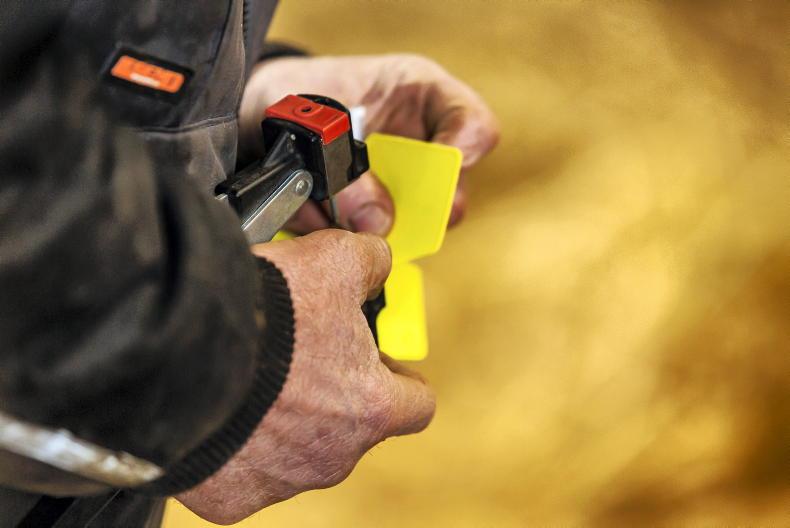

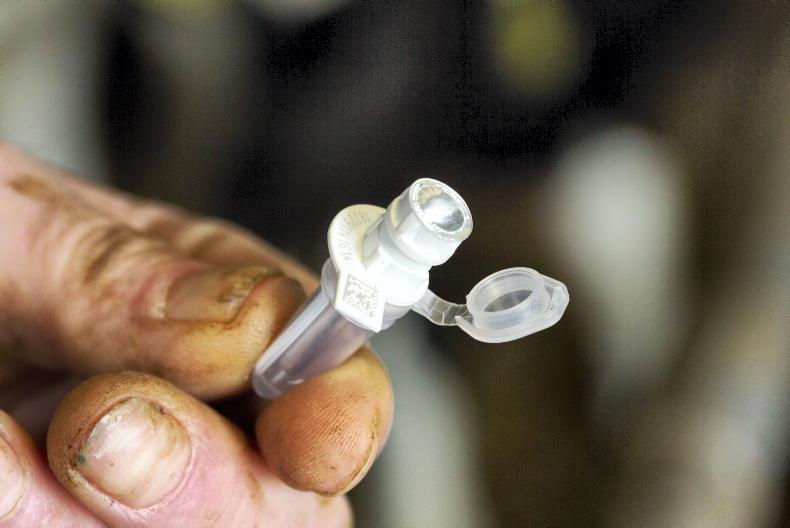
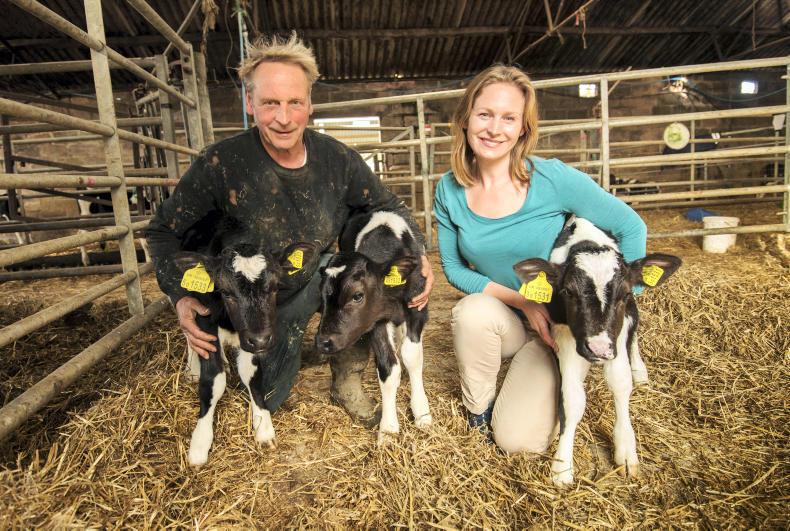
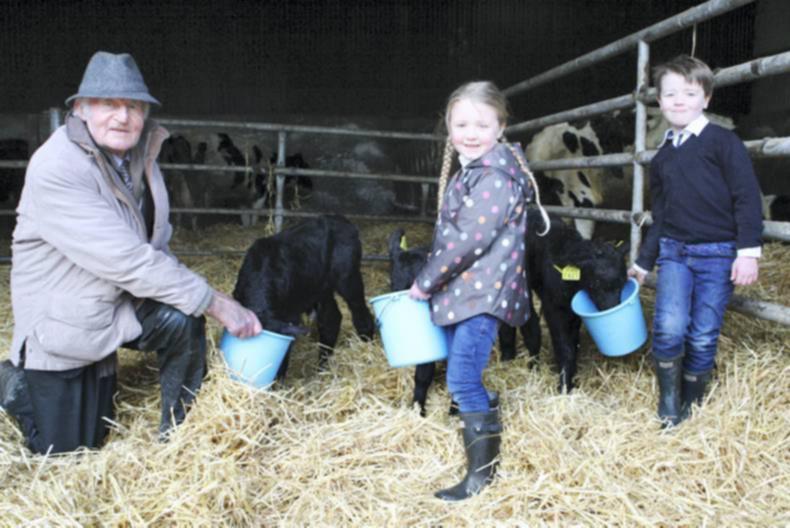
SHARING OPTIONS